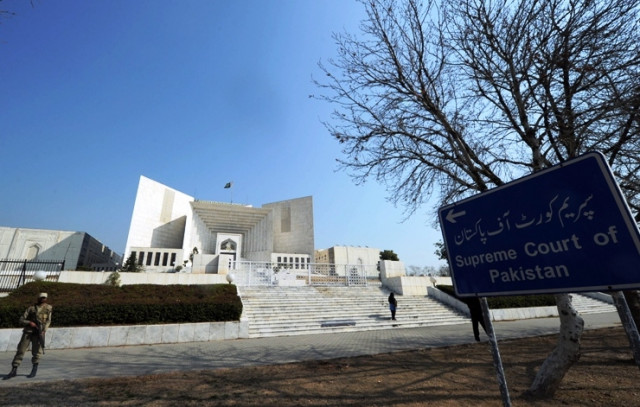Compatibility with the constitution: SC seeks govt’s input on amending Army Act
Petitioner says some provisions are against the constitution.

The petitioner, Col (retd) Ikram, submitted that some clauses of the act are “against the Constitution,” and need to be amended.
He pleaded the three-judge bench, headed by Chief Justice Iftikhar Muhammad Chaudhry, to order amendment to the Army Act to bring it in line with the provisions of the Naval Ordinance and the Air Force Act.
Against the Constitution
The petitioner said that to take a statement from the accused, on oath, during a court-martial, and then using the same against them as evidence, is contradictory to the Qanoon-e-Shahadat, or the law of testimony.
The Constitution does not allow compelling the accused to give a statement on oath, the petitioner said in his statement.
He added that not announcing the verdicts by the court-martial, soon after they are recorded, is in violation of the constitutional and fundamental rights of members of Pakistan Army, besides being discriminatory.
The attorney general requested the court for some time to submit a reply.
The court directed him to seek instructions from relevant authorities and submit a reply till April 18.
Adiala’s ‘missing prisoners’
The court was informed that two former inmates of Adiala – Abdul Majid and Abdul Basit, allegedly picked up by intelligence agencies after their acquittal by the Lahore High Court – are in critical condition.
Five more inmates are kept like prisoners in an internment centre in Landi Kotal, Khyber Agency.
The chief justice asked Raja Irshad, the counsel for the Inter-Services Intelligence (ISI) and Military Intelligence (MI), about the inmates.
Irshad told the court that the inmates are in the custody of civilian provincial authorities, and that he has nothing to do with the matter.
Advocate Tariq Assad, counsel for the ‘missing’ prisoners, told the court that he personally visited the centre and found that inmates were kept in a bunker-like room.
The chief justice, citing international conventions, said that such treatment is against the law. The court asked the intelligence agencies’ lawyer why they were interfering in this matter.
Irshad denied the involvement of ISI and MI and suggested that the bench ask Khyber-Pakhtunkhwa (K-P)’s governor or chief secretary.
After hearing parties in the case, the court issued notices to the attorney general and advocate general of K-P to determine responsibility in the case and inform the court on Thursday (today).
After the hearing, K-P’s Advocate General Assadullah Chamkani told The Express Tribune that the internment centre is under the control of Fata, and not the provincial government.
He said he has asked the secretary security Fata, Shakeel Qadir, to appear before the court on Thursday.
Published in The Express Tribune, April 12th, 2012.



















COMMENTS
Comments are moderated and generally will be posted if they are on-topic and not abusive.
For more information, please see our Comments FAQ